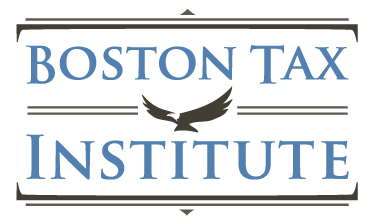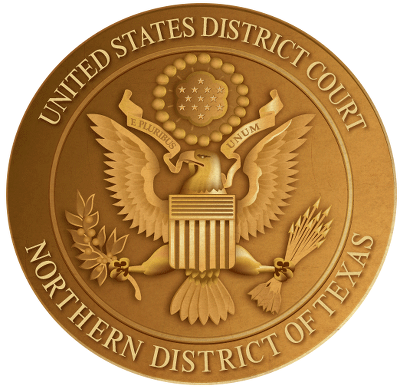The rules for substantiation of charitable deductions are very strict with extra layers when a donor advised fund or property donations are involved. You can get a pretty good feel for how things can go badly wrong from a recent opinion by Judge Jane Boyle of the United States District Court Northern District of Texas – Kevin M. Keefer and Patricia Keefer v US.
A Complicated Transaction
I could imagine this transaction being used in an exam for a Masters in Taxation. Kevin had started his career in public accounting, but had been working in the hospitality balance. Patricia had also held a CPA license for whatever that is worth. Kevin held indirectly a limited partnership interest in Burbank HHG Hotel LP. Burbank owned a Marriot Courtyard hotel near Burbank Airport in Los Angeles. Apple Hospital REIT expressed an interest in acquiring the hotel in 2015.
Prior to any sale being finalized Mr. Keefer converted part of his indirect interest into a direct 4% interest. He then donated that interest to the Utah based Pi Foundation which established a donor advised fund with the donation. An appraiser valued the interest at $1,257,000 largely on the basis of the pending sale, which ended up going through. The Keefers took that as a charitable contribution deduction.
Because the interest was a partnership interest with associated liabilities in excess of basis there was some gain recognized. There is a special rule that apportions some of the basis to the contribution causing the recognized gain to be greater than it would have been had the partnership interest been sold for a dollar. If you don’t get that, don’t worry so much about it unless you have a bunch of partnership interests or are studying for your MST.
The Audit Report
The Keefer 2015 return was subject to audit. The agent disallowed the $1,257,000 charitable contribution resulting in a deficiency of $423,304. It seems to me that there should have been an adjustment to the gain, since with the charitable deduction disallowed there should not be a basis adjustment. Even though the adjustment is mentioned in the audit report, the agent does not do anything about it. Attorney Kenneth Horwitz wrote a letter to the agent pointing out her failure to reverse the basis adjustment and asking her to adjust her report, but apparently that went nowhere.
The report disallows the charitable contribution on two grounds. It notes that Form 8283 signed by both the appraiser and receiving institution with an appraisal attached as required for property valued at more than $500,000. There was a catch though:
Examiner made the determination that the appraisal was not qualified because it did not include the employer identification number (EIN) or Social Security number of the qualified appraiser or the person who employs or engages the qualified appraiser. An appraisal that does not contain each of the eleven provisions as described in Treas. Reg. § 1.170A-13{c)(3)(ii)(E) is not a qualified appraisal.
Then there is the problem with the acknowledgement required for contributions over $250. In the case of a donor advised fund the acknowledgement needs to include a statement that the funds are under the exclusive legal control of the sponsoring organization.
I am more fanatical about getting acknowledgements for charitable contributions than a lot of people, but I have to confess that there is a good chance that both of those gotchas would have gotten by me if I had been reviewing the return. Thus I tend to think that asserting the accuracy penalty was kind of overkill, but the accuracy penalty is pretty routine.
The Opinion
Rather than go to Tax Court, the Keefers decided to pay the tax and ask for a refund followed by a suit in District Court. This threw the IRS computers for a loop. The refund request was denied as being untimely because the statute had run on the original return. The notice itself recites that the deadline is the later of inter alia “2 years after you paid the tax”, but somehow they didn’t register with the programmers. What is really odd is that the IRS did not concede this point in the litigation and it had to be addressed by Judge Boyle, who ruled that the claim was timely. From there things get worse for the Keefers.
First of all I thought that getting at least some refund due to the basis issue was a sure thing. The government came up with something though. They argued that the donation was an anticipatory assignment of income. Judge Boyle notes that the sale was not a sure thing when the donation was made, which favors the taxpayers. There is another issue though. The 4% partnership interest that was carved out to make the donation did not include a share of reserve funds. That meant that the Keefers had not donated their entire interest. That would create additional tax that would wipe out the basis adjustment.
On denial of the deduction Judge Boyle ruled that the failure of the acknowledgement by Pi to state that they had legal control was enough to deny the deduction. This was despite there being a separate package in which that was explained. Since that was enough to torpedo the deduction Judge Boyle did not get into the argument about the appraiser’s ID number. So we can keep losing sleep over that one also.
Conclusion
All in this is a good illustration about how meticulous you should be with charitable contributions in general but particularly those of property and to donor advised funds. I have to think that the people running the funds might be wanting to check their acknowledgements. I hope that this decision gets appealed, but have not gotten any response to my inquiries on it.
Lew Taishoff who blogs the Tax Court relentlessly agrees with the government on the assignment of income issue. Being a partnership guy, I am not so sure, but I tend to defer to the more learned. He agrees that the IRS timeliness argument borders on frivolous. On why they went to District Court rather than his favorite venue, he wrote me:
The strategic consideration is probably that USDCNDTX is allegedly taxpayer-friendly and tax law clueless. Your schoolmate Judge Albert G (“Scholar Al”) Lauber would have hung Keefer out to dry.
Other Coverage
Theresa Schiep has Texas Couple Denied $1.3M Deduction For Interest Donation on Law360 Tax Authority.
The Preachers’ Aid Society and Benefit Fund discusses the case at some length in its Washington News section – Partnership Gift Charitable Deduction Denied. It closes with some practical advice.
Most donors give cash or public stock to DAF sponsoring organizations. The check is immediately cashed and the stock usually is promptly sold and converted to cash. Therefore, the actions of the organization demonstrate exclusive control and are in compliance with Section 170(f)(18)(B). However, this District Court decision may be followed by the Tax Court or other District Court judges. For this reason, it is important that donor receipts for DAF gifts be modified to include this provision:
“No goods or services were provided in exchange for your generous financial donation and the nonprofit organization has exclusive legal control over the assets contributed.”
For convenience, it would be appropriate for the more extensive language to be used for all DAF gift receipts. In the interests of simplicity, many organizations may choose to use this language for all receipts.
While the risk is primarily for DAF gifts of partnership interests, business interests or minority interests in real estate, it is important for all organizations that sponsor DAFs to use the expanded language in future contemporaneous written acknowledgments. This language is designed to comply with Section 170(f)(8) and Section 170(f)(18) requirements.
———————————————————————————————————————————————————————————-
Originally published on Forbes.com.
For great value continuing professional education. I recommend the Boston Tax Institute

You can register on-line or reach them by phone (561) 268-2269 or email vc@bostontaxinstitute.com. Mention Your Tax Matters Partner if you contact them.
For articles oriented toward tax professionals check out Think Outside The Tax Box.
































































































